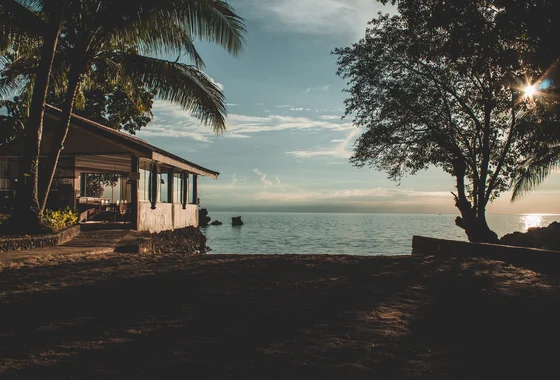
Buying a Vacation Home: Things to Consider Before You Dive In

Owning a vacation home can be a dream come true, offering a retreat from the daily grind and a place to create lasting memories with family and friends. However, before you take the plunge into vacation home ownership, there are several important factors to consider. In this blog, we'll explore the key considerations that can help you make an informed decision.
1. Location, Location, Location:
The first and foremost consideration is the location of your vacation home. Do you prefer a beachfront property, a cozy cabin in the mountains, or a vibrant urban getaway? Think about the destination that suits your lifestyle and interests.
2. Frequency of Use:
Consider how often you'll use the vacation home. Will it be a weekend retreat, a seasonal getaway, or a place for extended vacations? Your usage pattern can influence the type of property that makes the most sense.
3. Budget and Financing:
Determine your budget for the vacation home, including not only the purchase price but also ongoing expenses like property taxes, maintenance, insurance, and utilities. Explore your financing options and secure pre-approval for a mortgage if necessary.
4. Rental Income Potential:
If you plan to offset costs by renting out your vacation home when you're not using it, research the rental market in the area. Consider factors like rental demand, peak seasons, and property management options.
5. Property Management:
Managing a vacation home remotely can be challenging. Explore property management services in the area to help with maintenance, cleaning, and guest communication if you decide to rent it out.

6. Travel Convenience:
Consider the travel time and convenience of your vacation home. Is it easily accessible by car or plane? The easier it is to reach, the more likely you'll use it frequently.
7. Local Amenities and Activities:
Research the local amenities and activities in the area. Are there attractions, restaurants, outdoor activities, or cultural experiences that align with your interests and those of your potential guests?
8. Resale Value:
While you may not be thinking of selling your vacation home now, consider its resale potential. Locations with strong appreciation trends can be better long-term investments.
9. Maintenance and Upkeep:
Vacation homes require regular maintenance and upkeep, even if they're not used year-round. Be prepared to budget for these expenses and arrange for property management if needed.
10. Tax Implications:
Consult with a tax advisor to understand the tax implications of owning a vacation home, including property taxes, rental income reporting, and potential deductions.
11. Insurance Coverage:
Ensure that your vacation home is adequately insured, including coverage for natural disasters, theft, and liability. Factors like location and property type can impact insurance costs.
12. Future Plans:
Think about your long-term plans for the vacation home. Will it be a place to retire eventually, or do you envision passing it down to future generations?
13. Legal Considerations:
Understand any local zoning laws, homeowners' association rules, or rental regulations that may affect your vacation home.
14. Environmental Impact:
Consider the environmental impact of your vacation home, especially if it's in a sensitive ecosystem. Sustainable practices and eco-friendly features may be important.
By carefully considering these factors and doing your due diligence, you can make a well-informed decision about buying a vacation home. Whether it's a place for relaxation, adventure, or a combination of both, your vacation home can provide years of enjoyment and a valuable asset for the future.









